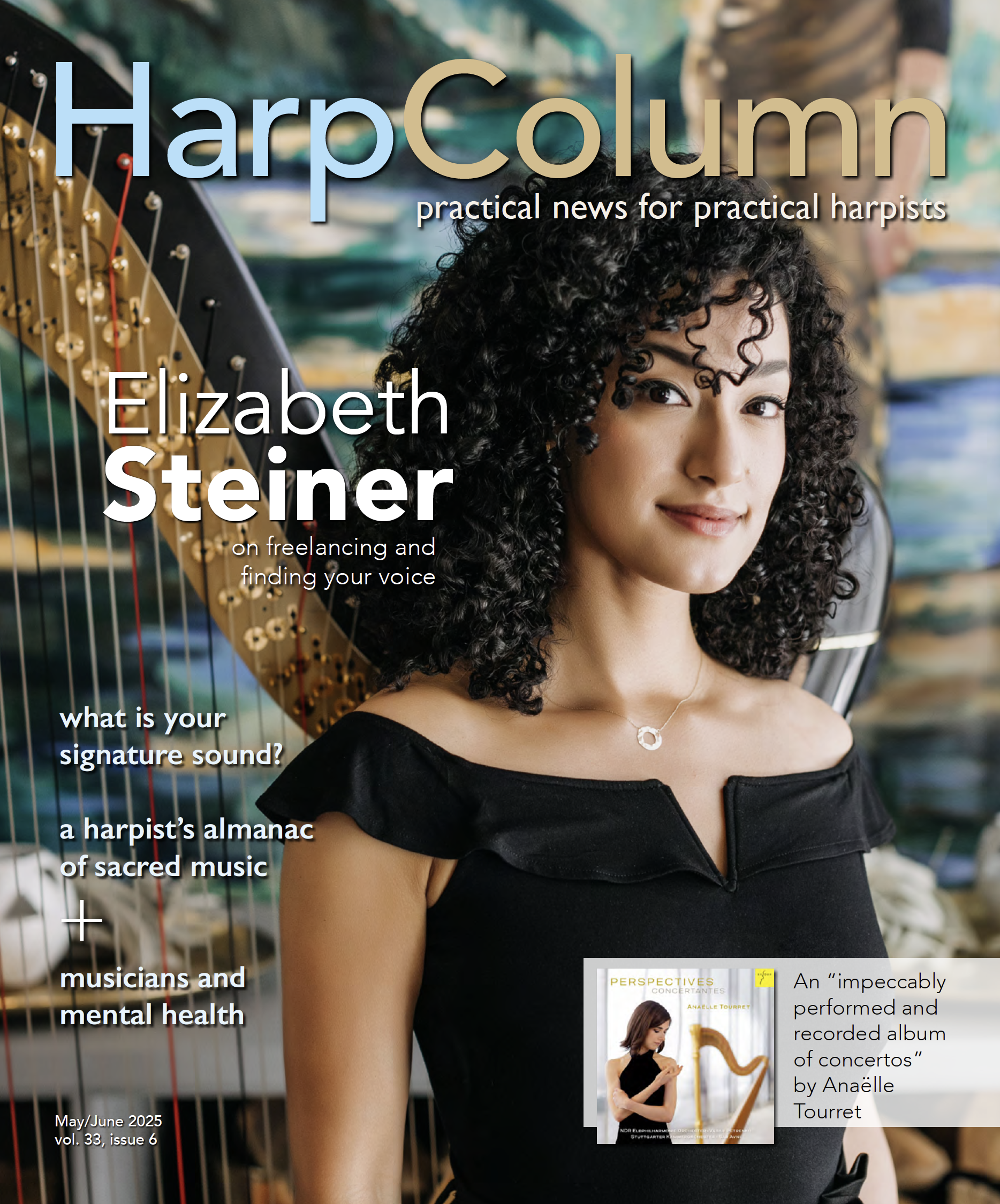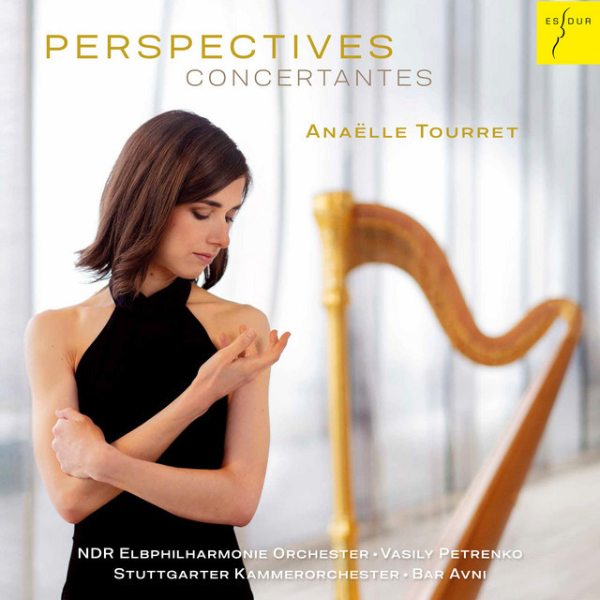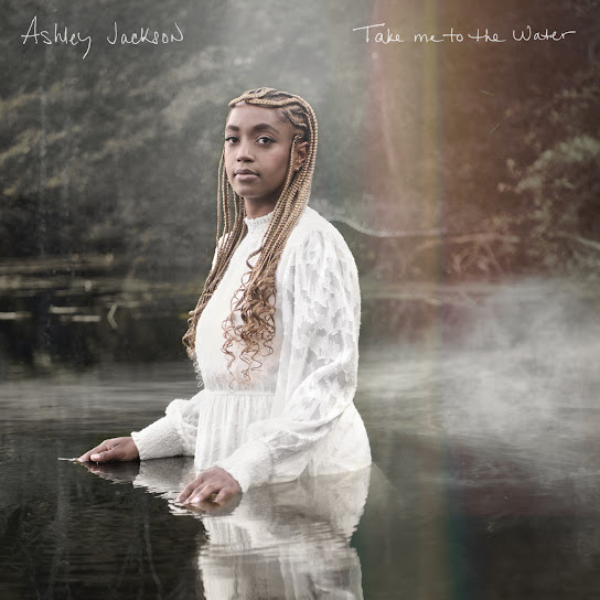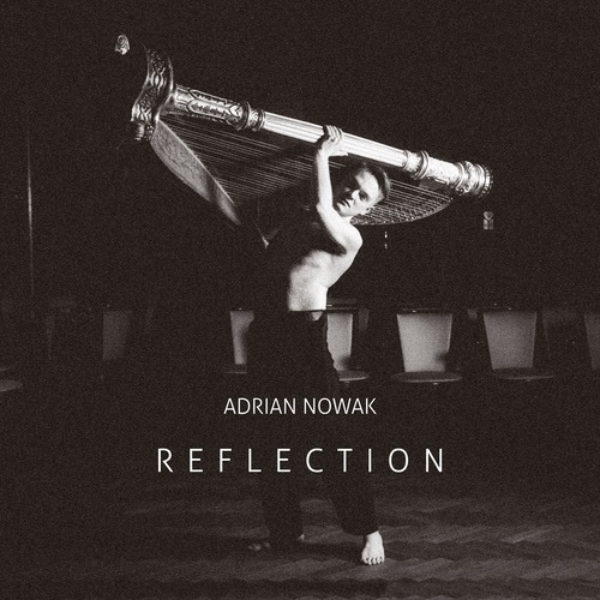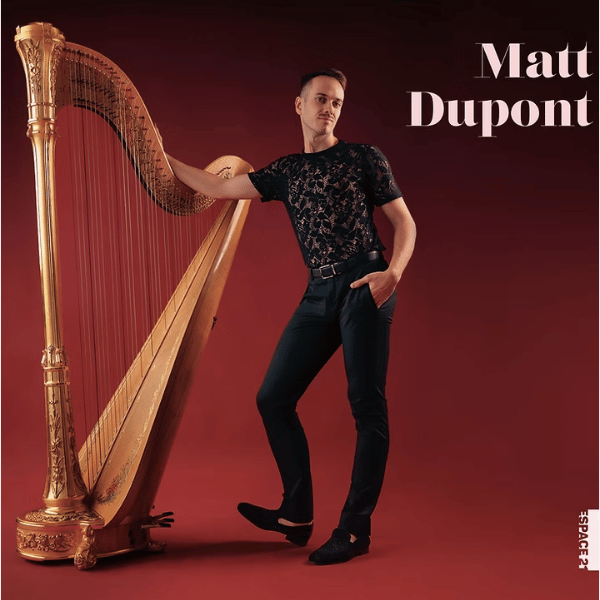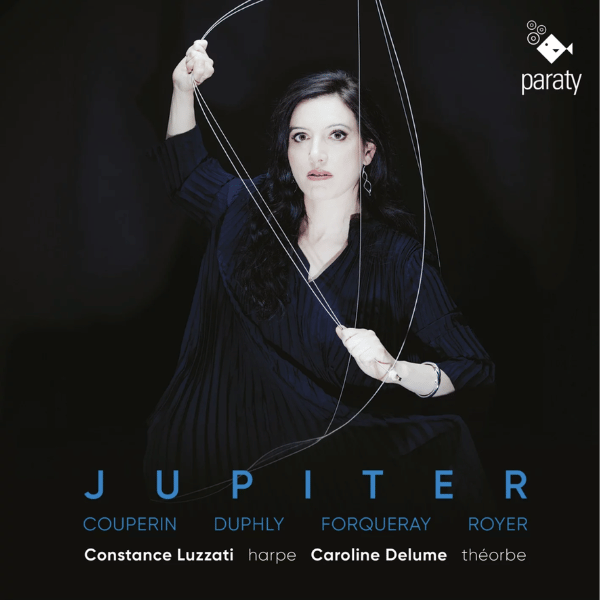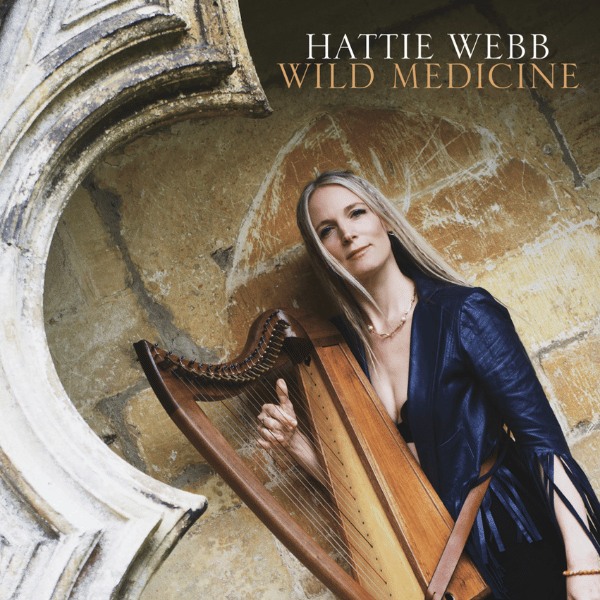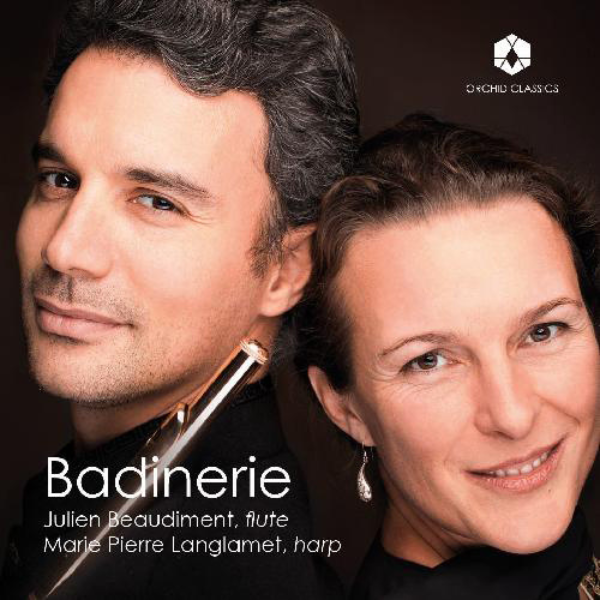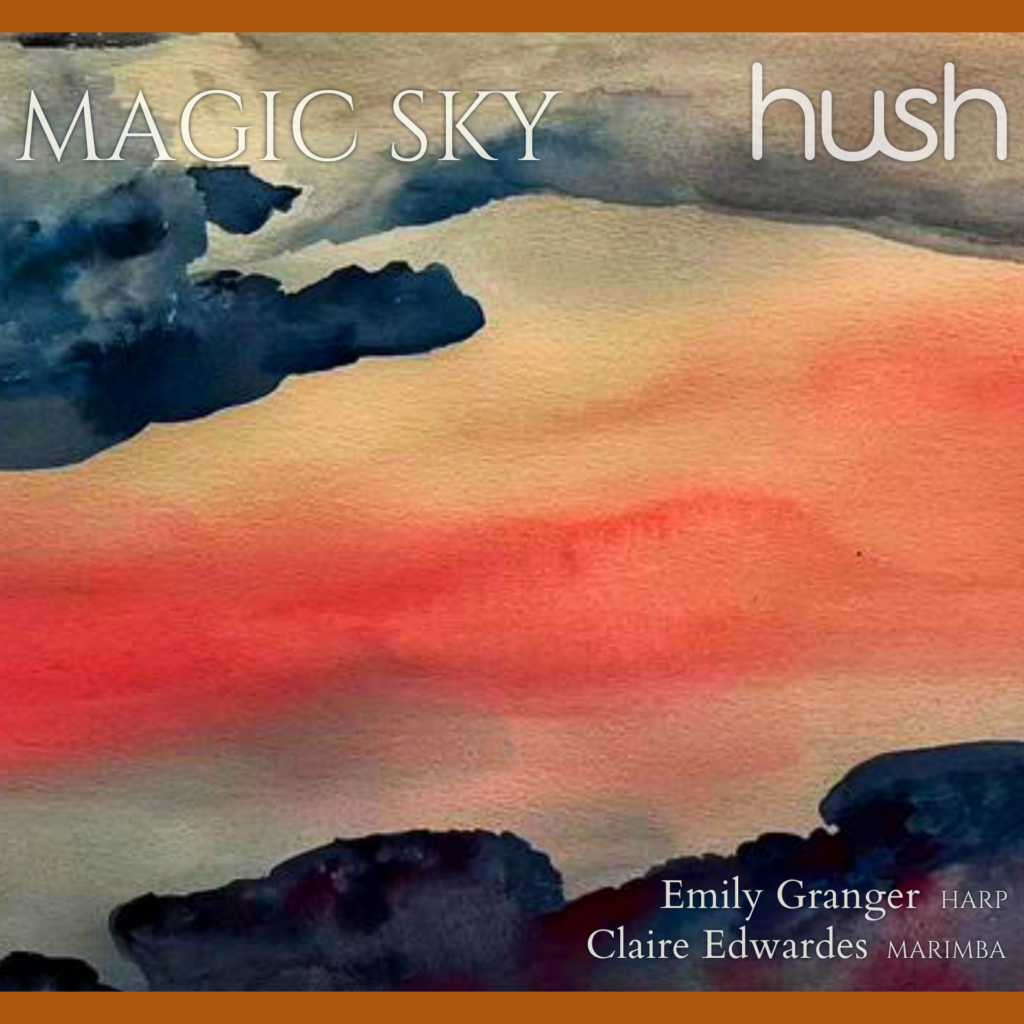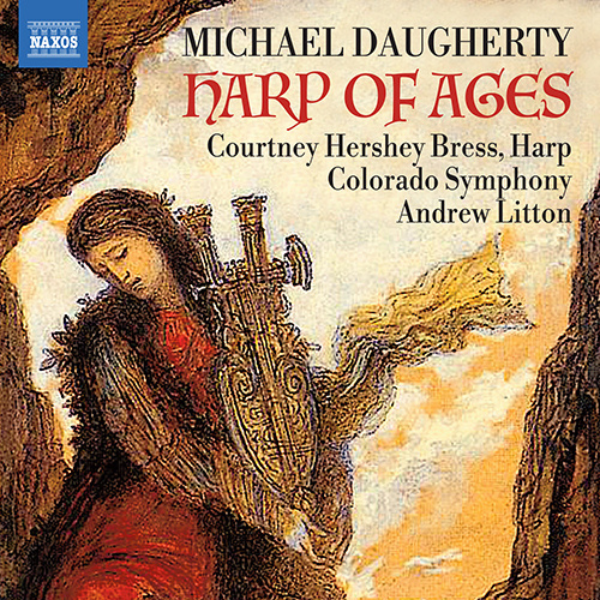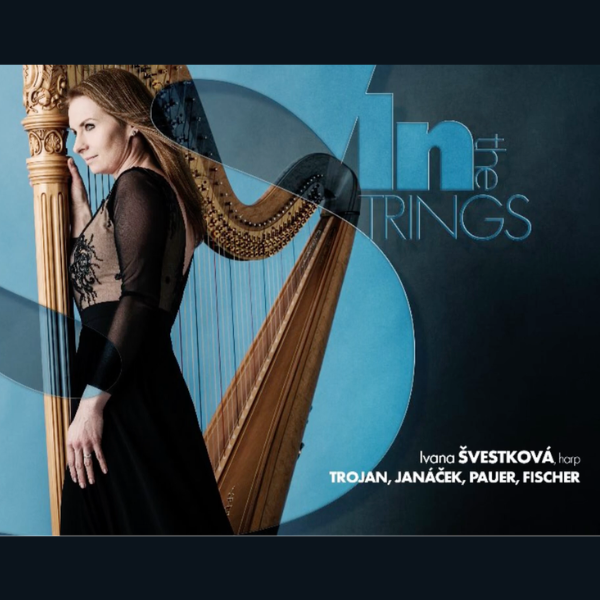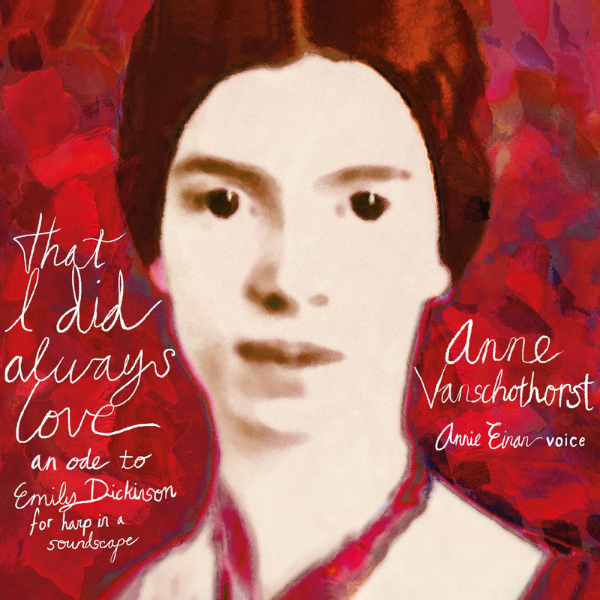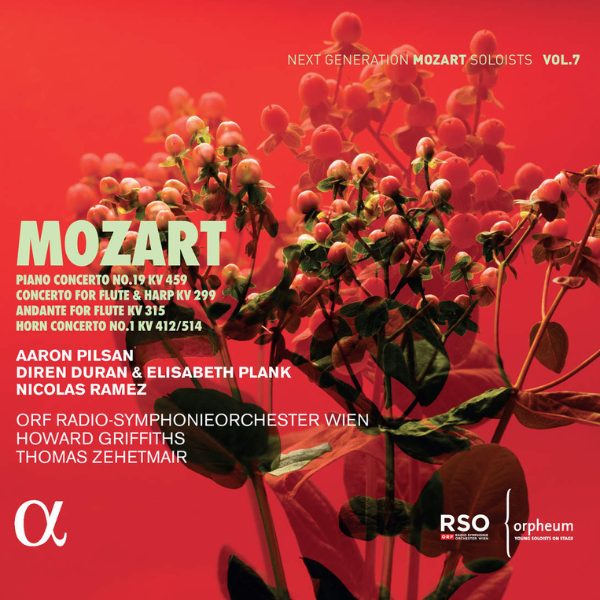
9/10
Sunniva Rødland, harp. Lawo, 2019.
The title of Norwegian Harpist Sunniva Rødland’s newest release Postures, suggests the approach or attitude brought to bear on the music, yet this time, the comportment referred to is from the composers themselves.
As a developing musician, Rødland found it difficult to find harp recordings, let alone recordings of new music. It was often at World Harp Congress meetings that she would discover what was out there, and it was this sense of anticipation, adventure, and patience that has informed her work ever since. This disc of repertoire by contemporary Norwegian composers represents that elusive recording she searched for all those years ago. In it are works of contrasting “postures” and angles, like the passage of time, energy, and life force, moving forward or standing still.
The title work by Mark Adderly explores the emotional viability of highly charged mini-phrases. Moods emerge, explode, and then evanesce into white space. While their energy is clearly powerful, it’s in the pregnant silences where Rødland sets them apart that the magic occurs, their echo and decay as interesting as the moment the strings are struck and sound begins. Rødland commissioned David Brattlie’s Credo Reloading, a frenetic piece of self-discovery and development.
The musical compositional piece, Nocturne, was created by the pianist John Field, and perfected by Frederic Chopin. Simply put, it’s a work that reflects the atmosphere of nighttime. But there’s a lot more to it, namely the use of an ostinato that engenders a feeling of tranquility. It’s an almost-lullaby with a delicate song-like theme floating above the arpeggiated figures. Pianos often use the soft pedal to keep the nocturne residing within certain dynamic parameters. Wolfgang Plagge’s Nocturne embodies these characteristics, and then some, taking advantage of the harp’s timbre by extending chords throughout its range, and inexorably building tension. In Rødland’s hands, the music becomes a magical journey that invites comparison to Debussy’s Nocturnes where images come into focus, then recede just as quickly, never quite able to pin down—or at least not for long. It’s delicious.
In his Concerto for Harp and Tape, Bjørn Fongaard recorded on his own invention—a microtonal guitar in which he administered prepared techniques as well as objects on the guitar itself to achieve glorious timbres and tones. These tones resemble an electric guitar crossed with Javanese gamelan, but never stray into anything too troubling. After all, Fongaard was not only a professional guitarist, but also a regular on a popular Norwegian children’s show as well as a teacher. The duet is airy and whimsical, a space(y) odyssey of sorts with the harp playing the role of ground control. The work was never performed in the composer’s lifetime and is likely one of Rødland’s treasured finds. This is its recording premier.
Following the mood perfectly is a collection of Ten Miniatures by Yngve Slettholm. Given an assignment to write one work under a minute, he found the exercise so delightful, he continued in this manner, exploring various soundscapes as if under a microscope. Like tapas for harp, the servings may be small, but they are luminous and filled with imagination.




